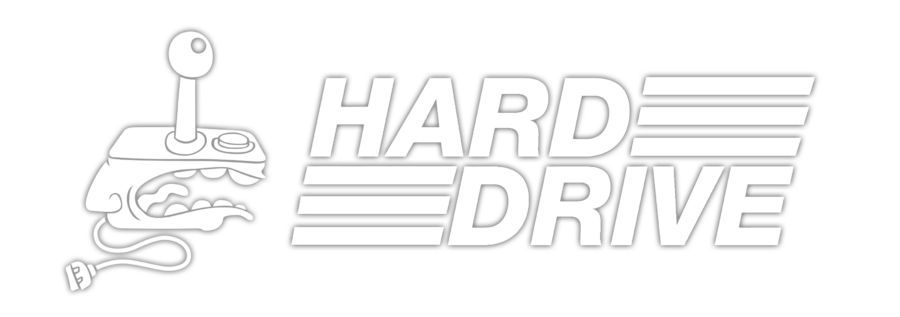The “indie Metroidvania” has become a cliché at this point, which I understand. The old Super Metroid/Symphony of the Night formula is proven, flexible, relatively easy to make, and has produced some big hits like Axiom Verge and Hollow Knight. I’d also point to a few personal favorites here like Timespinner and Iconoclasts.
The genre has been in the process of mutating for the last few years, however. Somewhere along the line, someone decided to start stealing mechanics from Soulslike games, like limited healing or a parry system, and fusing them into Metroidvanias.
The results have been mixed. Sometimes it works out – for example, I know several people who really like Ender Lilies – but more often it creates a game that’s both inaccessible and depressing.
Awaken – Astral Blade manages to break out that mold. I played it for the first time at an indie show a few months ago, where I was surprised by how easily I picked it up. It’s much more accessible than a lot of games in this particular lane; you get thrown right into the action and the combat has a nice fluid rhythm to it that’s more like Devil May Cry than anything else. It gets distinctly rougher as you reach its midpoint, but this is a better attempt at this sort of genre chimera than most of the indie games I’ve seen.
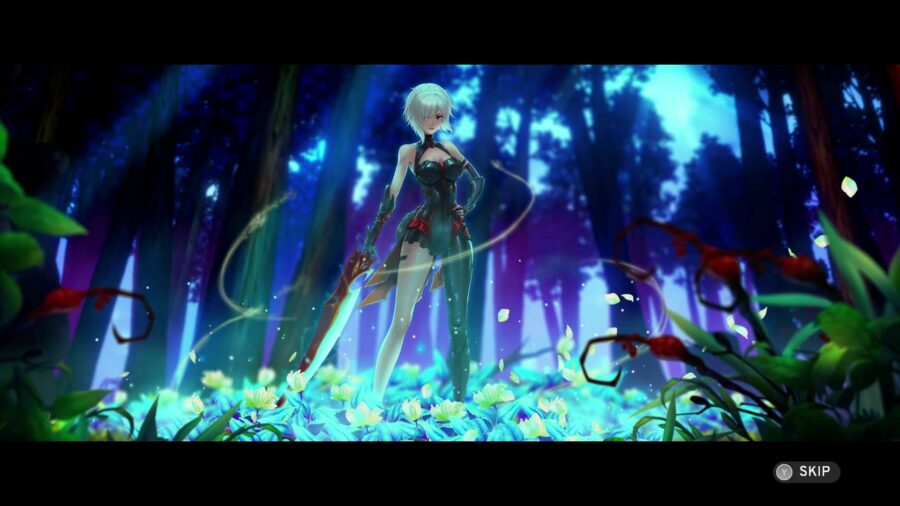
You play Awaken as Tania, a “combat bionic” who’s been dispatched as a one-bot rescue mission. A team of corporate researchers went missing on the isolated Horace Islands after reports of a major archaeological discovery, and Tania’s job is to find them.
The island is full of mutated plants and animals, created by wellsprings of an unknown form of energy. Soon, Tania’s creator/surrogate father orders her to investigate the source of that energy, which leads her to question her purpose, discover the Horace Islands’ complicated history, and fight a procession of biomechanical horrors.
You do have to acknowledge that Awaken wears most of its influences on its sleeve. Tania’s starting combos include Vergil’s Lunar Phase and Dante’s Stinger; it uses the Dark Souls checkpoint/health flask system; and of course, Tania is a sad white-haired android girl dressed in black clubwear, like a slightly better-adjusted 2B. Creativity is largely a question of hiding your sources, and Awaken didn’t hide shit.
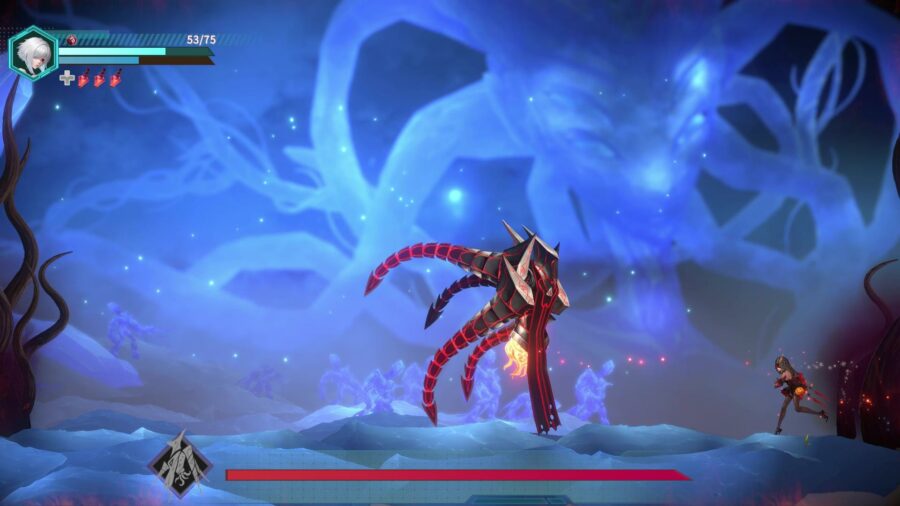
That being said, what got me interested in Awaken in the first place is that Tania starts with most of her core skills. You begin the game with a sword and a forward dodge that doubles as an air dash, and quickly get taught how to end your combos with a “Power Surge” that allows for big, high-damage finishers. It’s relatively simple, but once you learn each enemy’s rhythm, you can style on most of them. Most of what I tried to do in Awaken worked, whether I was trying to use the combo system or not.
One of my pet hatreds about Soulslike combat, or at least the watered-down indie version thereof, is how you’re consistently placed in a defensive position. You have to watch for attacks, then dodge/parry them and counter. Awaken doesn’t force that approach; it’s powerful, but it’s not mandatory. It also doesn’t gate any of Tania’s core abilities behind a skill tree. I have a lot of pet peeves about how action games work in 2024, and Awaken simply doesn’t do most of them.
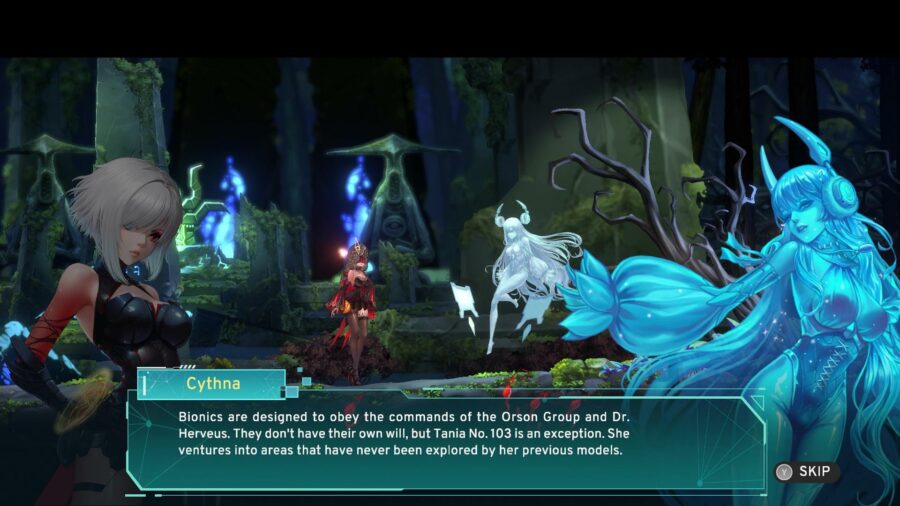
Most of Awaken’s challenge is reserved for its bosses, each of which has a broad assortment of attacks and at least two distinct phases. You can only heal in Awaken by using the 3 “flower flasks” that Tania carries around with her, so you can’t brute-force a boss by power-leveling or burning resources. The only way to clear Awaken is practice. Some of the bosses initially feel like brick walls, but patience, pattern recognition, and a few key upgrades can get you past them.
As you reach the game’s halfway point, however, Awaken hits a few unique snags. It’s got a couple of mid-game upgrades that don’t work particularly well but are also treated as critical, like the “gravity jump” skill, as well as an occasional emphasis on obnoxious platforming challenges. Awaken is at its best when it’s a fast-moving 2D spectacle fighter, and everything that gets in the way of me trashing robots/mutants/robot mutants drags down the whole.
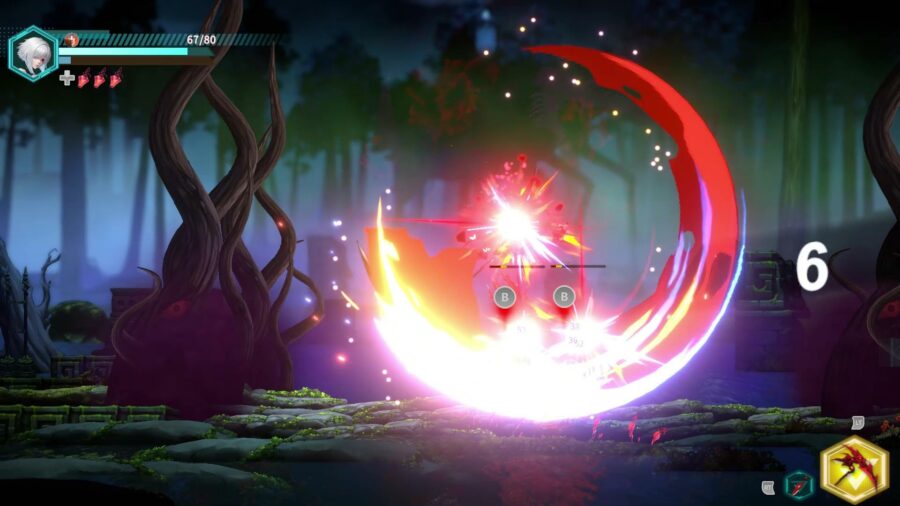
Awaken also has a dose of the same impenetrability that Evotinction did, where it’s written like its prologue is missing. It’s particularly weird as you get further into the Horace Islands, as it engages a full, potentially complex subplot about the two extinct societies that initially settled the island… and then drops it like a hot rock. The story isn’t hard to follow, but it takes a lot of manic swerves.
As a result, Awaken – Astral Blade is a mixed bag. It’s got a great combat system that’s well worth expanding on, as well as some deeply weird environments, but its back half could have used some extra refinement. I loved the first couple of hours, though, and there’s real potential here. I’d like to see what the same team did with a new project.
[Awaken – Astral Blade, developed by Dark Pigeon Games and published by ESDigital Games, is now available for PlayStation 4&5 and Steam for $19.99. This review was written using a Steam code sent to Hard Drive by an ESDigital Games PR representative.]
